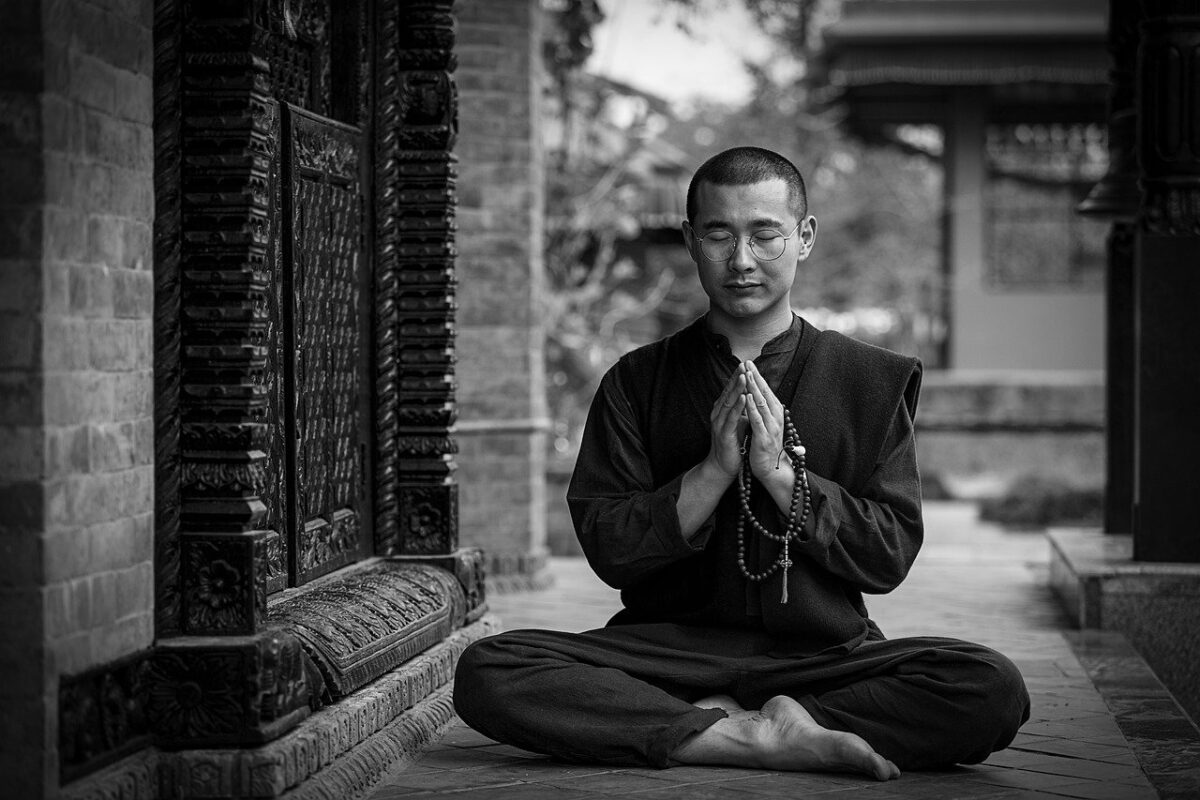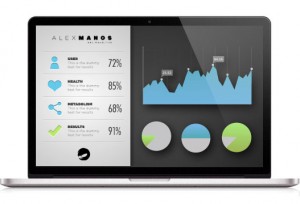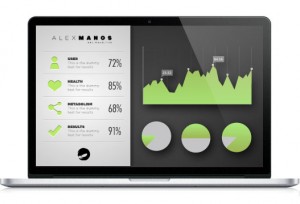ALEX MANOS HEALTH & PERFORMANCE
The Resiliency Program
Like never before have we needed to cultivate our resilience. Growing resilience enhances our ability to handle all that life throws at us: physically, mentally, spiritually, and emotionally (source).
Why You Should Complete The Resiliency Program
- Sustainability in meaningful and valued activities.
- Personal growth as a result of one’s experience.
- The capacity to recover or rebound from disruptions in physiological, emotional, or cognitive functioning.
- Improved capacity to recognise and self-regulate responses to stress.


Why Should I Do The Resiliency Program?
- Do you feel overwhelmed? Stressed? Burnt Out?
- Do you feel you are at the mercy of your circumstances – reacting to situations rather than consciously cultivating the most appropriate response?
- Do you feel you lack purpose? Direction in life?
- Or are you interested in optimising performance? Optimising health? Or longevity?
- Do you feel you are truly, deeply, connected with yourself? Do you feel you express yourself honestly?
- Do you feel supported by your family? Your friends? Your colleagues?
These are all questions that are appropriate to consider when on the topic of resilience.
Understand it, Measure it, Improve It, Thrive In It.
“Resilience is not about bouncing back, or being a hero, or the idea of gritting our teeth because “what doesn’t kill you makes you stronger”. Resilience is about being open to learning and growth, being able to take risks because of a sense of being able to deal with the consequences of that risk. Resilience does not protect us from setback, but it ensures we are able to manage our way through it.”
(Pemberton, 2015)
Practitioner Course

The Resiliency Program
Module 1 will introduce you to key concepts, and provide an overview of The Resiliency Program. We will introduce, define, and expand on:
- The Resiliency Quadrant: physical, mental, emotional and spiritual.
- Allostasis and allostatic load.
- Vulnerability.
- Heart Rate Variability.
Through defining these terms, we will have a sound understanding of why resiliency is so important and why a lack of resilience may contribute to many of the chronic conditions which are at epidemic levels – from obesity and cardio-metabolic conditions to irritable bowel syndrome, and neurodegenerative conditions such as Alzheimer’s.
We will also evaluate our own resiliency via validated resiliency questionnaires and other assessments including biofeedback devices, as well as evaluate our perceived stress levels via validated questionnaires. These will be able to be repeated at the end of the Resiliency Program (and at any stage in the future) to monitor your resilience.
Session One: Introducing the program, why it is needed and how it will benefit you and your clients. Introduction in to key terms such as the exposome, allostasis and allostatic load, resiliency and the resiliency zone, the quadrant, and other key terms..
Session Two: Assessing resiliency, perceived stress, and well-being.
“The process of adapting well in the face of adversity, trauma, tragedy, threats, or even significant sources of stress.”
We will discuss how nutrition, sunlight and artificial light, exercise, intermittent fasting and cold/hot therapy (such as cold showers or sauna therapy) may enhance our resilience when used appropriately. We will dive in to psychoneuroimmunology to help our understanding of the mind-body connection and immune resilience.
Session One: We will discuss the concept of ‘acquired resilience’.
Session Two: Building resilience through earthing/grounding.
Session Three: Building resilience through light exposure. Learn about the different frequencies of light, and how to use light (such as infrared light) to optimise health.
Session Four: Mitochondria – the foundations of a resilient human. We will dive in to the science of mitochondria, including the cell danger response to understand how these ancient bacteria are fundamental to human health, and how to improve/maintain their function.
Session Five: How To Create A Resilient Microbiome. We will look at the research on what makes a resilient microbiome (and define what this is) and how we can look after our guts.
Session Six: How To Create A Resilient Immune System. We will dive in to various areas of immunity including psychoneuroimmunology to understand the interconnectedness of our minds, nervous systems and immune systems.
Session Seven: How To Become Resilient To Environmental Toxins.
Session Eight: Metabolic flexibility as a form of resilience.
Session Nine: Heart Rate Variability.
Session Ten: Genetics and Resiliency.
Session 11: Exercise and resiliency. Learn what the science really says about exercise, including what to do when we have a chronic health issue.
Session Twelve: Fasting for resilience. Perhaps one of the most common mistakes people make – the inappropriate use of fasting. We will discuss what we currently know about fasting for resilience and human health and why it might be causing you more problems than it is solving.
“To be able to effectively set goals and consistently achieve them, without getting distracted. You see challenges, change, and adversity as opportunities rather than threats and thus are likely to be flexible and agile.”
In module three of The Resiliency Program we will discuss how we can enhance our mental resilience through specific exercises stemming from such modalities as cognitive behavioural coaching and mindfulness. We will explore:
Creating a list of our values so we can align our behaviour with what’s important for us.
We will also explore the importance of mastery, optimism and positive-psychology, and psychological flexibility – two key terms when discussing mental resilience.
Session One: How can we learn about our current state of mental resilience – there are questionnaires for that! We will start by exploring what mental resilience is, and where you’re currently at.
Session Two: Positive psychology, optimism, and cognitive behavioural coaching.
Session Three: Mindfulness training: Intention, Attention, Attitude.
Session Four: Developing emotional regulatory skills.
“The ability to generate positive emotion and the ability to recover from negative emotion.”
In module four of The Resiliency Program we will discuss the role that emotional regulation plays in enhancing our resiliency drawing on research from The Institute of HeartMath, the ‘Broaden and Build’ theory of emotions, and Shame Resilience Theory from Brene Brown. Exercises will be provided to support our ability to regulate our emotions. We will also touch on: gratitude, and the concept of savouring our experiences. We will also discuss relationships and the the concepts of family resilience and community resilience.
Session One: Introducing emotional resilience, what it consists of.
Session Two: Gratitude, and positive emotional states with Heartmath.
Session Three: Emotional suppression/repression, alexithymia and chronic health conditions. We will dive in to the work of experts such as Gabor Mate, Bessel Van De Kalk and Peter Levine.
Session Four: Self-esteem, coping strategies, emotional expression.
Session Five: Family resilience. What this is so important and how to build it.
“Concerned with the internal life of mind and spirit and its association with being in the world. It implies a capability for a deep understanding of existential questions and insight into multiple levels of consciousness. In addition to self- awareness, it implies awareness of our relationship to the transcendent, to each other, to the earth and all beings. It enables one to maintain both internal and external peace and display love regardless of the circumstances whether stress or acute inconsistency. It could, therefore, help in conflict management and calm co-existence in the society.”
Spirituality may be at the heart of resiliency, and the Resiliency Program. We will explore what spirituality is (it includes life purpose), and how we can enhance it. We will discuss and explore contemplative exercises including: journalling, meditation, mindful movement, yoga, breathwork.
We will also discuss staying resilient when living with chronic health issues.
Finally we’ll discuss creativity and it’s role in enhancing resiliency. For educational purposes only, we will briefly touch on the role psychedelics may play in enhancing our resiliency through supporting creativity.
Session One: Journalling for resilience.
Session Two: Establishing your values, purpose and meaning in life. Creating your North Star.
Session Three: Creativity, flow states, breathwork, and psychedelics.
General Public Course

The Resiliency Program
Module 1 will introduce you to key concepts, and provide an overview of The Resiliency Program. We will introduce, define, and expand on:
- The Resiliency Quadrant: physical, mental, emotional and spiritual.
- Allostasis and allostatic load.
- Vulnerability.
- Heart Rate Variability.
Through defining these terms, we will have a sound understanding of why resiliency is so important and why a lack of resilience may contribute to many of the chronic conditions which are at epidemic levels – from obesity and cardio-metabolic conditions to irritable bowel syndrome, and neurodegenerative conditions such as Alzheimer’s.
We will also evaluate our own resiliency via validated resiliency questionnaires and other assessments including biofeedback devices, as well as evaluate our perceived stress levels via validated questionnaires. These will be able to be repeated at the end of the Resiliency Program (and at any stage in the future) to monitor your resilience.
Session One: Introducing the program, why it is needed and how it will benefit you and your clients. Introduction in to key terms such as the exposome, allostasis and allostatic load, resiliency and the resiliency zone, the quadrant, and other key terms..
Session Two: Assessing resiliency, perceived stress, and well-being.
“The process of adapting well in the face of adversity, trauma, tragedy, threats, or even significant sources of stress.”
We will discuss how nutrition, sunlight and artificial light, exercise, intermittent fasting and cold/hot therapy (such as cold showers or sauna therapy) may enhance our resilience when used appropriately. We will dive in to psychoneuroimmunology to help our understanding of the mind-body connection and immune resilience.
Session One: We will discuss the concept of ‘acquired resilience’.
Session Two: Building resilience through earthing/grounding.
Session Three: Building resilience through light exposure. Learn about the different frequencies of light, and how to use light (such as infrared light) to optimise health.
Session Four: Mitochondria – the foundations of a resilient human. We will dive in to the science of mitochondria, including the cell danger response to understand how these ancient bacteria are fundamental to human health, and how to improve/maintain their function.
Session Five: How To Create A Resilient Microbiome. We will look at the research on what makes a resilient microbiome (and define what this is) and how we can look after our guts.
Session Six: How To Create A Resilient Immune System. We will dive in to various areas of immunity including psychoneuroimmunology to understand the interconnectedness of our minds, nervous systems and immune systems.
Session Seven: How To Become Resilient To Environmental Toxins.
Session Eight: Metabolic flexibility as a form of resilience.
Session Nine: Heart Rate Variability.
Session Ten: Genetics and Resiliency.
Session 11: Exercise and resiliency. Learn what the science really says about exercise, including what to do when we have a chronic health issue.
Session Twelve: Fasting for resilience. Perhaps one of the most common mistakes people make – the inappropriate use of fasting. We will discuss what we currently know about fasting for resilience and human health and why it might be causing you more problems than it is solving.
“To be able to effectively set goals and consistently achieve them, without getting distracted. You see challenges, change, and adversity as opportunities rather than threats and thus are likely to be flexible and agile.”
In module three of The Resiliency Program we will discuss how we can enhance our mental resilience through specific exercises stemming from such modalities as cognitive behavioural coaching and mindfulness. We will explore:
Creating a list of our values so we can align our behaviour with what’s important for us.
We will also explore the importance of mastery, optimism and positive-psychology, and psychological flexibility – two key terms when discussing mental resilience.
Session One: How can we learn about our current state of mental resilience – there are questionnaires for that! We will start by exploring what mental resilience is, and where you’re currently at.
Session Two: Positive psychology, optimism, and cognitive behavioural coaching.
Session Three: Mindfulness training: Intention, Attention, Attitude.
Session Four: Developing emotional regulatory skills.
“The ability to generate positive emotion and the ability to recover from negative emotion.”
In module four of The Resiliency Program we will discuss the role that emotional regulation plays in enhancing our resiliency drawing on research from The Institute of HeartMath, the ‘Broaden and Build’ theory of emotions, and Shame Resilience Theory from Brene Brown. Exercises will be provided to support our ability to regulate our emotions. We will also touch on: gratitude, and the concept of savouring our experiences. We will also discuss relationships and the the concepts of family resilience and community resilience.
Session One: Introducing emotional resilience, what it consists of.
Session Two: Gratitude, and positive emotional states with Heartmath.
Session Three: Emotional suppression/repression, alexithymia and chronic health conditions. We will dive in to the work of experts such as Gabor Mate, Bessel Van De Kalk and Peter Levine.
Session Four: Self-esteem, coping strategies, emotional expression.
Session Five: Family resilience. What this is so important and how to build it.
“Concerned with the internal life of mind and spirit and its association with being in the world. It implies a capability for a deep understanding of existential questions and insight into multiple levels of consciousness. In addition to self- awareness, it implies awareness of our relationship to the transcendent, to each other, to the earth and all beings. It enables one to maintain both internal and external peace and display love regardless of the circumstances whether stress or acute inconsistency. It could, therefore, help in conflict management and calm co-existence in the society.”
Spirituality may be at the heart of resiliency, and the Resiliency Program. We will explore what spirituality is (it includes life purpose), and how we can enhance it. We will discuss and explore contemplative exercises including: journalling, meditation, mindful movement, yoga, breathwork.
We will also discuss staying resilient when living with chronic health issues.
Finally we’ll discuss creativity and it’s role in enhancing resiliency. For educational purposes only, we will briefly touch on the role psychedelics may play in enhancing our resiliency through supporting creativity.
Session One: Journalling for resilience.
Session Two: Establishing your values, purpose and meaning in life. Creating your North Star.
Session Three: Creativity, flow states, breathwork, and psychedelics.
Testimonial
“I’m going to get my point across straight away. I can honestly Alex Manos is a very inspirational, knowledgeable, understanding and very humble individual, this both reflects on his personality and his teachings as a coach.I wouldn’t remotely hesitate to advise him to my friends, family, co-workers or clients as I have an awful lot of trust in his teaching and confidence in his ability. To sum up Alex is a natural Role Model type individual that has his best interests in YOUR health, the goals YOU have set and the way YOU are feeling and functioning.”
Ricky G
Frequently Asked Questions
Can I join any time?
This program will run live, and content will be released each week. You can therefore start at any time.
Are the sessions recorded?
Yes, all the content is recorded, and so you can watch the videos whenever you like. Content will be uploaded weekly so you will be, initially, limited in how quickly you can go through the program.
How much time will this take up?
I recommend allowing one hour per week for the program. Not every week will be relevant for your needs, and so there may be weeks you want to miss too.

About Alex: Founder Of The Resiliency Program
- A certified Functional Medicine Practitioner via The Institute Of Functional Medicine.
- A certified breathwork facilitator.
- A certified psychedelic guide.
- A personal trainer and performance enhancement specialist.
- A massage therapist.
- A transformational coach.
- MSc in Personalised Nutrition.
- A lecturer and mentor to other health professionals.


